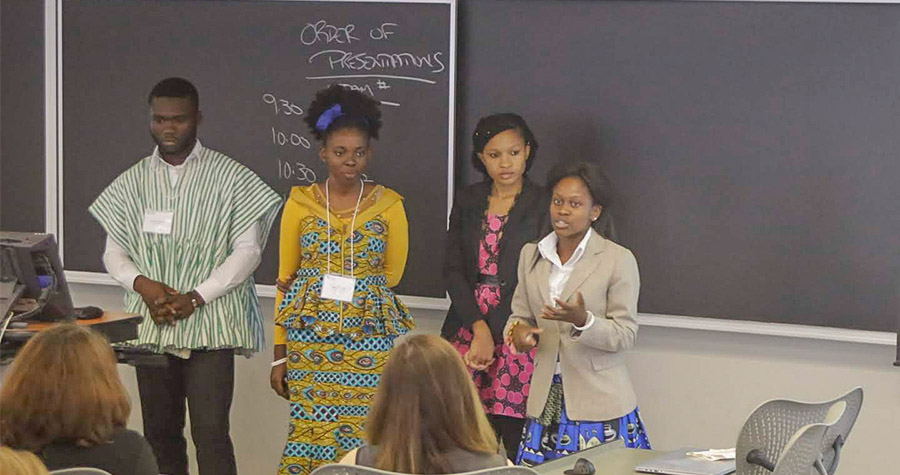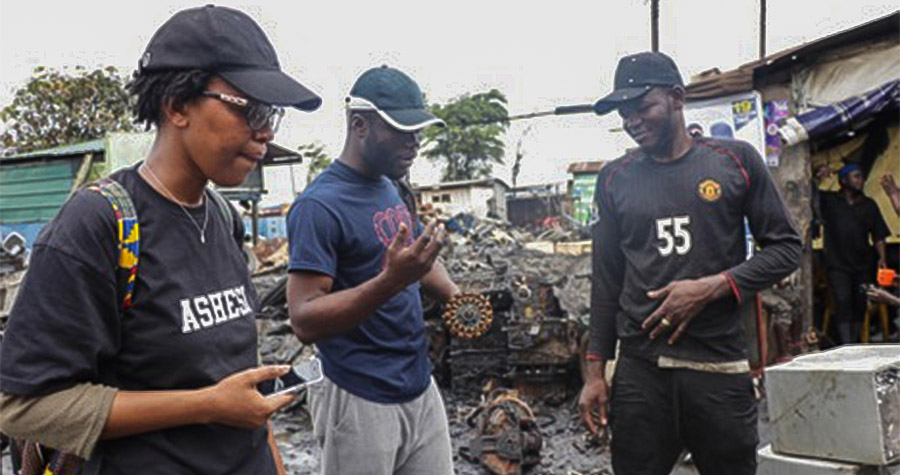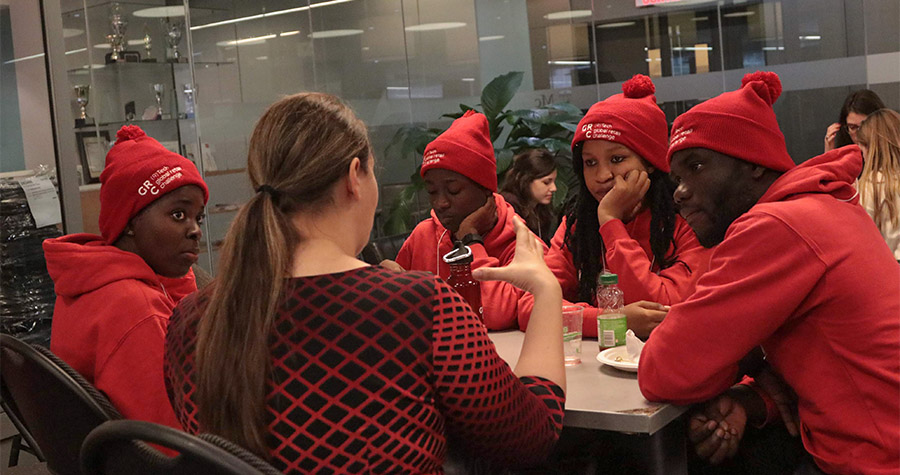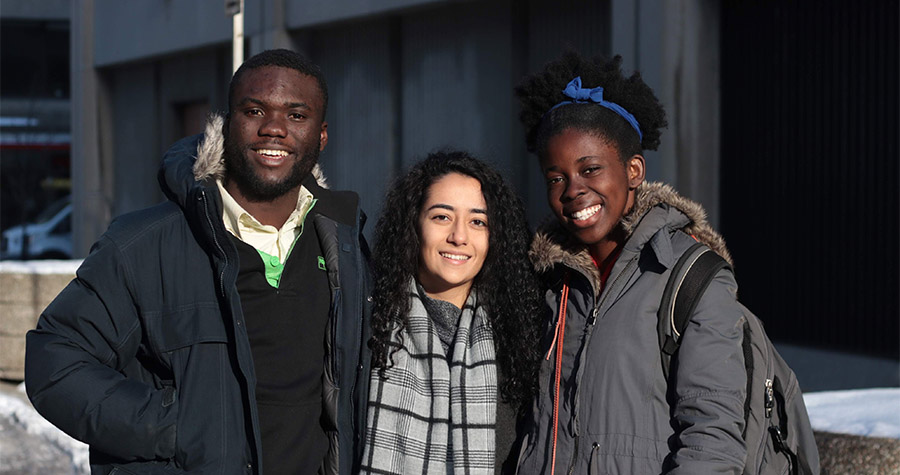
In November 2018, a student team from Ashesi’s Design lab along with 27 other student teams across the world, participated in the 2018 Global Retail Challenge held by Retail Industry Leaders Association and the Bensadoun school of Retail Management at McGill University in Montreal. For six weeks starting in September, the participating teams tackled weekly design thinking assignments, following which selected finalists were invited to Montréal to present their solutions before a panel of judges.

The basis of the challenge was to invite students to explore and tackle pressing issues in retail and rethink the way items in retail could be designed for the future. Participating teams were challenged to use principles of design thinking and circular economy to create business models that reduce waste by recovering and regenerating product materials at the end of their service life.
Our student team of six; Desmond Mensa, Judith Dembaremba, Sibongile Sithole, Janet Fuah, Emmanuel Wanye and Isatou Jallow chose to explore how to reduce the negative effects of electronic waste in Ghana.

Agbogbloshie is one of the world's largest e-waste dump sites. In 2009 alone, 129,000 tons of e-waste was dumped on the site. To earn a living, young scrap dealers try to extract metals such as copper from the waste by burning. The effect of this method of metal extraction is air and land pollution, exposing the young people and nearby communities to dire health problems.
In addressing the problem of electronic waste at Agbogbloshie, the team designed a wire stripping machine to eliminate the burning process of extracting the copper wires. Supported by the Ghana Climate and Innovation Center, the team designed a business model with sustainable revenue streams that delivered value for all identified stakeholders.

At the end of the initial Design Thinking process, the Ashesi team and eleven other teams were invited as semi-finalists to the Finals Weekend in Montréal to present their business model to Retail and Circular Economy experts.
“We got a lot of valuable feedback from our judges which opened up our eyes to some insights which we had been oblivious to,” shared Wanye Derry. “Overall, the judges asserted that our presentation was good. However, we need to do a bit more work in clearly defining our solution. The end result is quite apparent, but our plan of action on how we will get to that solution needs some improvement”
“The key next step we are working on is establishing a collaborative relationship between the Dobson Center for Entrepreneurship at McGill University and the Ashesi D:Lab,” shared Dr. Gordon Adomdza, Associate Professor of Business Administration at Ashesi.

“If there is one thing that Ashesi has taught us, it is the value of connections and the power of collaboration,” shared Isatou Jallow. “We view this as an opportunity to connect with scholars from all over Africa and see how we can work together in tackling problems in a way that is relevant to the whole of Africa, and globally as well.”